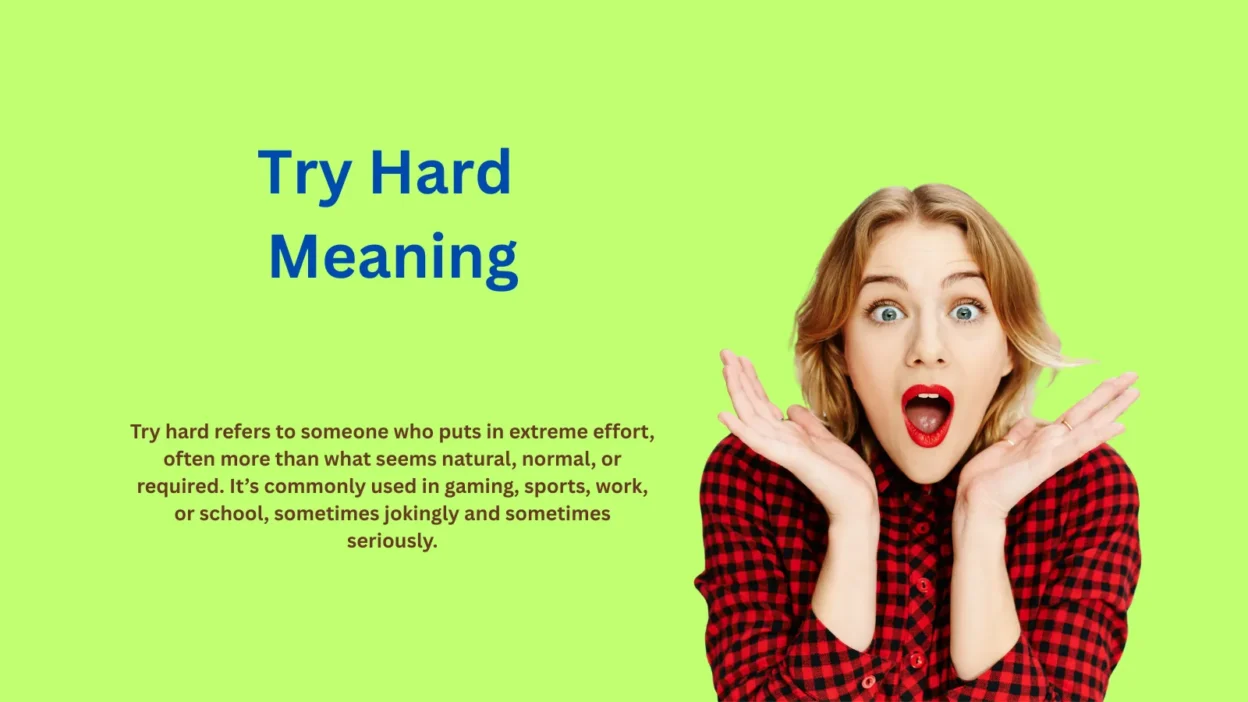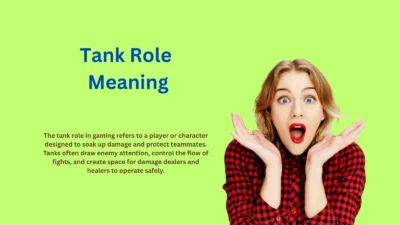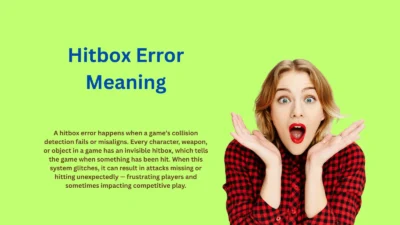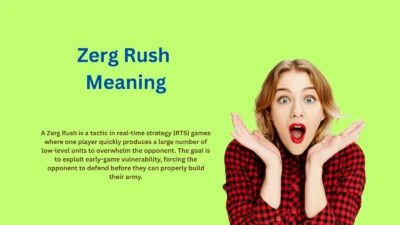From online gaming chats to social media discussions, Try Hard Meaning reflects effort, persistence, and sometimes over-the-top dedication. Try hard is a term used to describe someone who puts in excessive effort to succeed, often beyond what seems necessary. It can be both positive, praising determination, or negative, teasing someone for being too intense or competitive.
People often use it like this:
- “He’s such a try hard in every game we play.”
- “Stop being a try hard — just relax and have fun.”
In this article, we’ll explain what try hard means, explore its origins, highlight contexts where it’s used, and give examples showing how it’s applied in everyday life and online culture.
What Does “Try Hard” Mean?
Try hard refers to someone who puts in extreme effort, often more than what seems natural, normal, or required. It’s commonly used in gaming, sports, work, or school, sometimes jokingly and sometimes seriously.
Example Sentences:
- “She’s a try hard in class — always answers every question perfectly.”
- “Gamers call him a try hard because he uses every trick to win.”
Key Points to Remember:
- Can be positive or negative, depending on context.
- Often describes excessive effort or competitiveness.
- Common in gaming, sports, workplace environments, or school.
- Reflects dedication, persistence, and sometimes social over-competitiveness.
Background & History
The term try hard comes from gaming communities, especially in online multiplayer games. Players who were overly competitive or intensely focused were called “try hards” by others, sometimes to mock them for taking casual games too seriously.
Over time, the term spread to broader online culture, including social media, memes, and daily conversation. Today, try hard can refer to anyone who seems to be trying too hard — from fashion trends to work performance — often highlighting effort beyond what is socially expected.
Usage in Various Contexts
Try hard isn’t limited to gaming — it can appear in everyday life, online, and professional settings.
In Texting
- “Don’t be a try hard — just chill 😎.”
- “He’s a try hard with his gym selfies.”
On Social Media
People use the term to tease or highlight extreme effort.
- Example: “She’s posting a new outfit every day… total try hard 😅.”
In Gaming
- “He’s such a try hard in Fortnite, using every cheat and strategy.”
- “Stop try harding — it’s just a casual match!”
In School or Work
- “He always stays late finishing every task — total try hard.”
- “Stop being a try hard and enjoy the team event.”
Bottom line: Try hard identifies over-enthusiasm, persistence, or excessive effort across multiple areas.
Common Misconceptions & Clarifications
- “Being a try hard is bad.”
Not necessarily. It can show dedication and commitment, depending on context. - “Only gamers are try hards.”
Wrong. Anyone showing extreme effort — in work, studies, or hobbies — can be called a try hard. - “Try hards are always serious.”
No. Sometimes it’s used jokingly or teasingly among friends.
Example Dialogue:
- Alex: “I’m trying so hard in this game!”
- Jamie: “You’re a try hard, but it’s impressive 😂.”
Key takeaway: Being a try hard is about effort, not perfection.
Similar Terms & Alternatives
| Term | Meaning | Example |
|---|---|---|
| Overachiever | Exceeds expectations | “She’s an overachiever in math class.” |
| Hardcore | Extremely dedicated | “Hardcore gamer alert!” |
| Perfectionist | Strives for flawless results | “He’s a perfectionist with every project.” |
| Competitive | Always wants to win | “Very competitive in office games.” |
| Ambitious | Has strong goals or drive | “Ambitious entrepreneur grinding daily.” |
While these terms capture effort and persistence, try hard often carries a playful, teasing, or sometimes critical tone.
How to Respond to This Term
Responses depend on tone:
Casual:
- “Haha, try hard alert! 😆”
- “Respect the dedication though!”
Funny:
- “Stop try harding — we’re not in a tournament!”
- “Try hard or cry hard? 😅”
Professional:
- “Impressive commitment and effort.”
- “Your determination is admirable.”
The right response depends on whether the context is playful, teasing, or serious.
Regional or Cultural Differences
Try hard is mainly used in English-speaking countries but appears globally online:
- US & UK: Mostly gaming and school/work contexts.
- Japan: Used for students or competitive hobbies.
- Pakistan & India: Applied to academics, sports, or social competitiveness.
- Europe: Often in online gaming and casual teasing.
Across cultures, try hard signals dedication, effort, and sometimes over-competitiveness, though the projects or activities differ.
Comparison with Similar Terms
| Expression | Focus | Try Hard Difference |
|---|---|---|
| Overachiever | Achievements & results | Try hard can be casual or playful |
| Competitive | Winning & performance | Try hard highlights intensity, not skill |
| Hardcore | Dedication & focus | Try hard may include social teasing |
| Ambitious | Long-term goals | Try hard is often short-term effort |
Try hard blends effort, persistence, and sometimes social perception, while other terms focus on achievement or attitude.
Usage in Online Communities & Memes
Reddit, TikTok, and Discord frequently use try hard to describe:
- Overly competitive players
- Friends who take casual games too seriously
- People showing extreme effort in hobbies or work
Example hashtags: #TryHard #GamingLife #EffortGoals
Dating Apps: Sometimes mentioned to show competitiveness or dedication humorously:
- Example: “Gym lover, try hard gamer, coffee enthusiast.”
Hidden or Offensive Meanings
Try hard is rarely offensive, but can be sarcastic or teasing, e.g., “Stop being a try hard 😏.”
Tone and context matter — emojis or voice inflection usually clarify intent.
Suitability for Professional Communication
In casual or creative environments, trying hard can be acceptable.
For formal or business contexts, use professional alternatives:
- “Highly committed”
- “Strong work ethic”
- “Dedicated contributor”
Example:
Instead of “He’s a try hard at work,” say “He demonstrates strong dedication to his projects.”
FAQs
- What does try hard mean?
Someone who puts in extreme or excessive effort. - Is it try hard positive or a negative?
It can be both — context determines tone. - Where did the term come from?
Online gaming communities, now widely used. - Can you try hard to be funny?
Yes, often used playfully among friends. - Is it okay to call someone a try hard at work?
Casual teams: yes. Formal settings: use professional phrasing.
Conclusion
Try hard meaning goes beyond teasing — it reflects persistence, dedication, and sometimes over-the-top effort. From gamers perfecting their skills to students excelling academically, try-hards put in extra effort to succeed.
Whether online, in school, at work, or among friends, understanding try hard helps you recognize effort, dedication, and sometimes the humor in overdoing things.
Remember: being a try hard isn’t always bad — it can be impressive, funny, or a sign of strong dedication.





